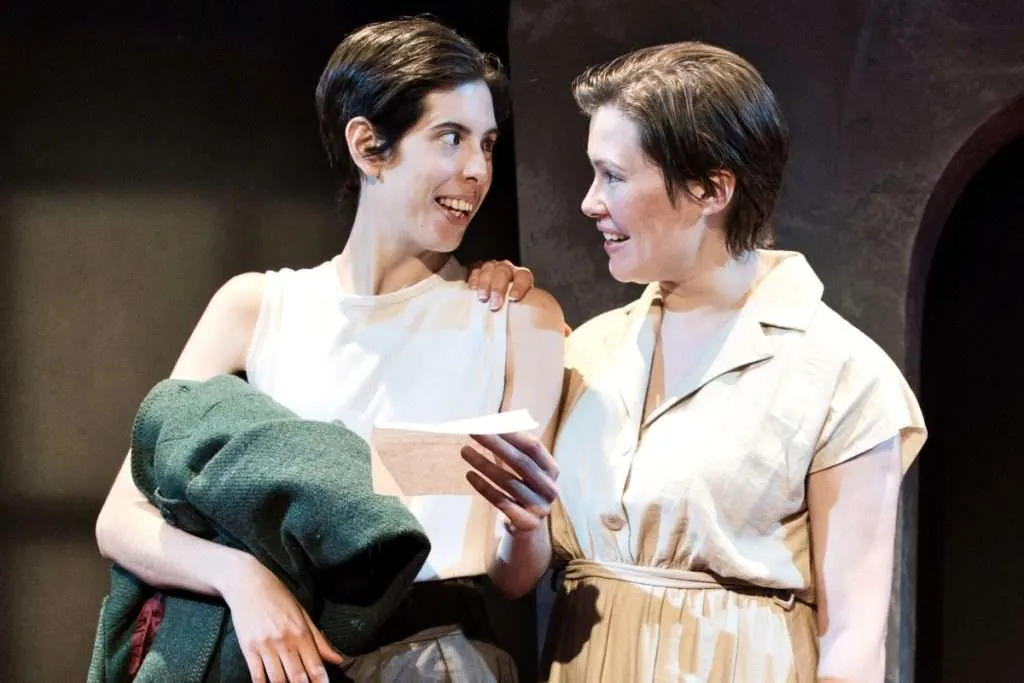Southwark Playhouse – until 12 July 2025
Reviewed by Claire Roderick
3***
Who is Claude Cahun? This is the question that Cahun themselves seeks to answer in D.R. Hill’s play. Born Lucy Schwob, Cahun’s explorations of identity and gender – “Neuter is the only gender that suits me” – propelled her art and writing, and also her actions during the German occupation of Jersey during WWII.
Beginning with a tableau that matches one of Claude’s photographs, the narrative switches between scenes from Claude’s childhood to their life in Paris and then Jersey. David Furlong’s assured direction manages to keep the narrative threads coherent, and the change of tone from surrealism to historical biography are smooth and mostly effective.
Juliette Demoulin’s set is bizarrely functional, with household furniture and sculpture fusing under Matthew Bliss’s atmospheric lighting design. Jeffrey Choy’s projections of Claude Cahun’s photographs are used stylishly as the cast reenact the creative process behind the images wearing Carla Joy Evans’ costumes.
After a miserable childhood, unaccepted as they question their gender by a mother with mental health problems and comforted by a more liberal father, Claude’s life changes when they meet Suzanne Malherbe, who becomes Claude’s photographer and takes the name Marcel Moore. They fall in love and leave for Paris, the male surrealists cannot accept Cahun as anything other than a woman – shown in gloriously clownish performances from Gethin Anderson and Ben Bela Bӧhm.
The couple leave Paris for Jersey, living as sisters and drawing interest from the locals with their sculptures and nude bathing that becomes dangerous when the island is occupied. The couple begin a campaign of resistance against the Germans, doctoring propaganda posters, painting slogans and scattering messages around the island. Claude assumes the identity of “The Soldier With No Name” and despite a few close shaves, they succeed in spreading dissent amongst the German soldiers. The chauvinistic attitudes of the German officers mean that they cannot imagine that the two women are acting alone. Hill shows the contrasting attitudes of the absolute believer in the Gestapo and the more pragmatic and humane career army officer to the couple, but both men repeat the mantra of “unnatural women.”
Rivkah Bunker’s bravely emotional performance as Claude is a wonderful contrast to Amelia Armande’s more stoic Marcel. Armande plays Marcel as Claude’s shield from the world, and her love for Claude is made clear, but glimmers of resentment and sadness leak through as she reminds Claude that she is always introduced as “my photographer” Gethin Anderson, Ben Bela Bӧhm and Sharon Drain play multiple roles with aplomb.
The fascinating story is important and this is a brave attempt to capture the views and actions of Claude Cahun, but the question asked in the play’s title remains unanswered.

